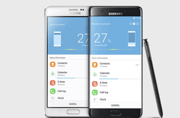A cunning bank scam wipes out couple's $240,000 life savings—are your funds at risk, too?
By
Seia Ibanez
- Replies 105
In an age where digital convenience is often celebrated, the darker side of our online world reveals itself in sophisticated scams that can devastate lives in the blink of an eye.
This harsh reality hit home for a Sunshine Coast couple, Kerry O'Mahony and Kerry Littlejohn, who fell victim to a cunning bank scam that wiped out their life savings, a staggering quarter of a million dollars.
This cautionary tale serves as a stark reminder that no one is immune to the threat of financial fraud, and it begs the question: Are your funds at risk, too?
The couple's ordeal began innocently enough as they sought to maximise their returns by shopping around for the best interest rate on their term deposit.
They came across an offer from ING Australia, or so they thought, which led to a series of events that would culminate in a financial nightmare.

‘I clicked on obtain a quote, and within, I think, about a day or two of doing that, we had a phone call…from ING,’ O'Mahony said.
The purported ING employee provided them with competitive quotes, documents, contracts, and payment instructions, all adorned with the bank's official logos. However, it was all an elaborate facade.
The couple's savings were with Suncorp bank at the time, necessitating a visit to their local branch to facilitate the transfer of funds.
Despite some initial doubts, the Suncorp teller, after reviewing the emails, suggested, ‘He looked at [the emails], and then he said “yeah, it looks alright, but you know if you're really concerned, you can ring ING”,’ O'Mahony said.
O’Mahony did just that in front of the teller, using a contact number from a Google search.
‘I did a Google search for the ING contact number. [It] was exactly what I put in, and it came up: 13 34 64,’ she said.
‘It is their phone number, but I rang it, and I didn't get through to ING, I got through directly to the scammers.’
Assured by the fake ING representative on the other end of the line, the couple proceeded with the transfer.
The telltale signs of a scam were present but went unnoticed.
The account details provided by the scammers were for a Commonwealth Bank account, not ING, and the email address used was not an authorised ING email.
By the time the couple realised the scam and contacted Commonwealth Bank, their $240,000 had vanished.
‘[It was] taken out pretty much straightaway and then moved around the world through various IP addresses,’ O'Mahony said.
The pair blamed the scammers for the incident, but they also asserted that Suncorp is accountable.
‘I just felt that [Suncorp's] duty of care to us was sadly lacking,’ O'Mahony said.
O’Mahony and Littlejohn filed a complaint with the Australian Financial Complaints Authority.
In response, Suncorp Bank has stated that it is supportive and will fully participate in the external review process by AFCA.
ING and Commonwealth Bank have also released statements acknowledging the increasing sophistication of scams and the importance of educating customers on protecting themselves.
You can read Suncorp Bank’s full statement below:
If you suspect you may have been scammed, please reach out and report your experience to the ACCC: https://www.scamwatch.gov.au/report-a-scam

Have you or someone you know been affected by a similar scam? What measures do you take to safeguard your savings? Join the conversation below and help us spread the word on staying scam-safe.
This harsh reality hit home for a Sunshine Coast couple, Kerry O'Mahony and Kerry Littlejohn, who fell victim to a cunning bank scam that wiped out their life savings, a staggering quarter of a million dollars.
This cautionary tale serves as a stark reminder that no one is immune to the threat of financial fraud, and it begs the question: Are your funds at risk, too?
The couple's ordeal began innocently enough as they sought to maximise their returns by shopping around for the best interest rate on their term deposit.
They came across an offer from ING Australia, or so they thought, which led to a series of events that would culminate in a financial nightmare.

Sunshine Coast couple fell victim to a cunning bank scam, wiping out their $240,000 savings. Credit: Shutterstock
‘I clicked on obtain a quote, and within, I think, about a day or two of doing that, we had a phone call…from ING,’ O'Mahony said.
The purported ING employee provided them with competitive quotes, documents, contracts, and payment instructions, all adorned with the bank's official logos. However, it was all an elaborate facade.
The couple's savings were with Suncorp bank at the time, necessitating a visit to their local branch to facilitate the transfer of funds.
Despite some initial doubts, the Suncorp teller, after reviewing the emails, suggested, ‘He looked at [the emails], and then he said “yeah, it looks alright, but you know if you're really concerned, you can ring ING”,’ O'Mahony said.
O’Mahony did just that in front of the teller, using a contact number from a Google search.
‘I did a Google search for the ING contact number. [It] was exactly what I put in, and it came up: 13 34 64,’ she said.
‘It is their phone number, but I rang it, and I didn't get through to ING, I got through directly to the scammers.’
Assured by the fake ING representative on the other end of the line, the couple proceeded with the transfer.
The telltale signs of a scam were present but went unnoticed.
The account details provided by the scammers were for a Commonwealth Bank account, not ING, and the email address used was not an authorised ING email.
By the time the couple realised the scam and contacted Commonwealth Bank, their $240,000 had vanished.
‘[It was] taken out pretty much straightaway and then moved around the world through various IP addresses,’ O'Mahony said.
The pair blamed the scammers for the incident, but they also asserted that Suncorp is accountable.
‘I just felt that [Suncorp's] duty of care to us was sadly lacking,’ O'Mahony said.
O’Mahony and Littlejohn filed a complaint with the Australian Financial Complaints Authority.
In response, Suncorp Bank has stated that it is supportive and will fully participate in the external review process by AFCA.
ING and Commonwealth Bank have also released statements acknowledging the increasing sophistication of scams and the importance of educating customers on protecting themselves.
You can read Suncorp Bank’s full statement below:
This case is currently being reviewed by AFCA, the independent dispute resolution body for consumers with financial complaints.
Suncorp Bank is very supportive and will fully participate in this external review process.
Suncorp Bank understands the impact frauds and scams can have on individuals.
Alongside the banking industry, we are committed to implementing the measures outlined in the Scam-Safe Accord including account name checking for domestic payments.
If you suspect you may have been scammed, please reach out and report your experience to the ACCC: https://www.scamwatch.gov.au/report-a-scam
Key Takeaways
- A Sunshine Coast couple lost nearly $240,000 in a sophisticated scam involving a fake ING employee and counterfeit email documents.
- Despite being cautious and consulting a bank teller, the couple's call to verify the scammer's legitimacy was intercepted via phone spoofing, leading them to believe they were speaking to ING.
- The scam highlighted failings in the verification processes, as the money was sent to a Commonwealth Bank account rather than ING, a detail that was overlooked.
- The couple has lodged a complaint with the Australian Financial Complaints Authority, and all banks involved have acknowledged the need for increased awareness and prevention of such sophisticated scams.







